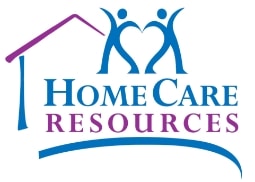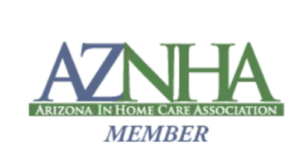Breathing issues, particularly taking frequent shallow breaths, can be a big sign that there’s something else going on.
This is something that a lot of older adults don’t notice that they’re doing at first. If this is a new situation for your elderly family member, you definitely need to talk with her doctor about what you’re seeing and how this is affecting her.

Lots of Factors Contribute to Shallow Breathing
There are both emotional and physical factors that can contribute to shallow breathing. If your elderly family member sits at a desk or table often and tends to hunch over, that limits the space available for her lungs to expand. But other factors, like being in almost constant pain, experiencing severe stress, and even illness, can also contribute.
Why Is Shallow Breathing Bad?
Shallow breathing means that your senior is taking more breaths than she really should per minute. So, she’s not just taking shallow breaths, but she’s breathing more rapidly. Shallow breathing can be a powerful sign that there’s something wrong, so it should always be investigated as thoroughly as possible. If your elderly family member doesn’t already have diagnosed breathing issues, this may be the first indication that she has that there is actually a problem with her lungs.
Encourage Your Senior to Try Breathing Exercises
If shallow breathing isn’t happening because of physical issues or ailments, then your senior may find that trying breathing exercises is helpful. Learning to gradually deepen her breathing and take fewer breaths per minute can help your elderly family member’s body to calm down. If she’s been breathing shallowly for a long time, deeper breathing won’t be easy at first. But it will get better with practice.
Talk to Your Senior’s Doctor
You should definitely mention this to your senior’s doctor, especially if this is something that your senior just started doing. Your senior’s doctor can rule out medical causes and help your elderly family member to find the answers that she needs. If your elderly family member’s doctor doesn’t find immediate answers, this might be more complicated and require a little bit more patience.
Shallow breathing may cause your senior to hyperventilate or to feel lightheaded at times. If that’s the case, then having someone with her when you can’t be there might be really important. Elderly care providers know how to help your senior stay safe and they can help her to take care of necessary tasks.
If you or an aging loved-one are considering hiring Home Care Services in Peoria, AZ, please contact the caring staff at Home Care Resources at (602) 443-4700
- Six Warning Signs of Diabetes to Watch for in Seniors with Dementia - May 19, 2025
- Understanding Chronic Conditions in Seniors: The Importance of Support - May 9, 2025
- Helping Your Elderly Loved One Maintain Healthy Vision - April 24, 2025




